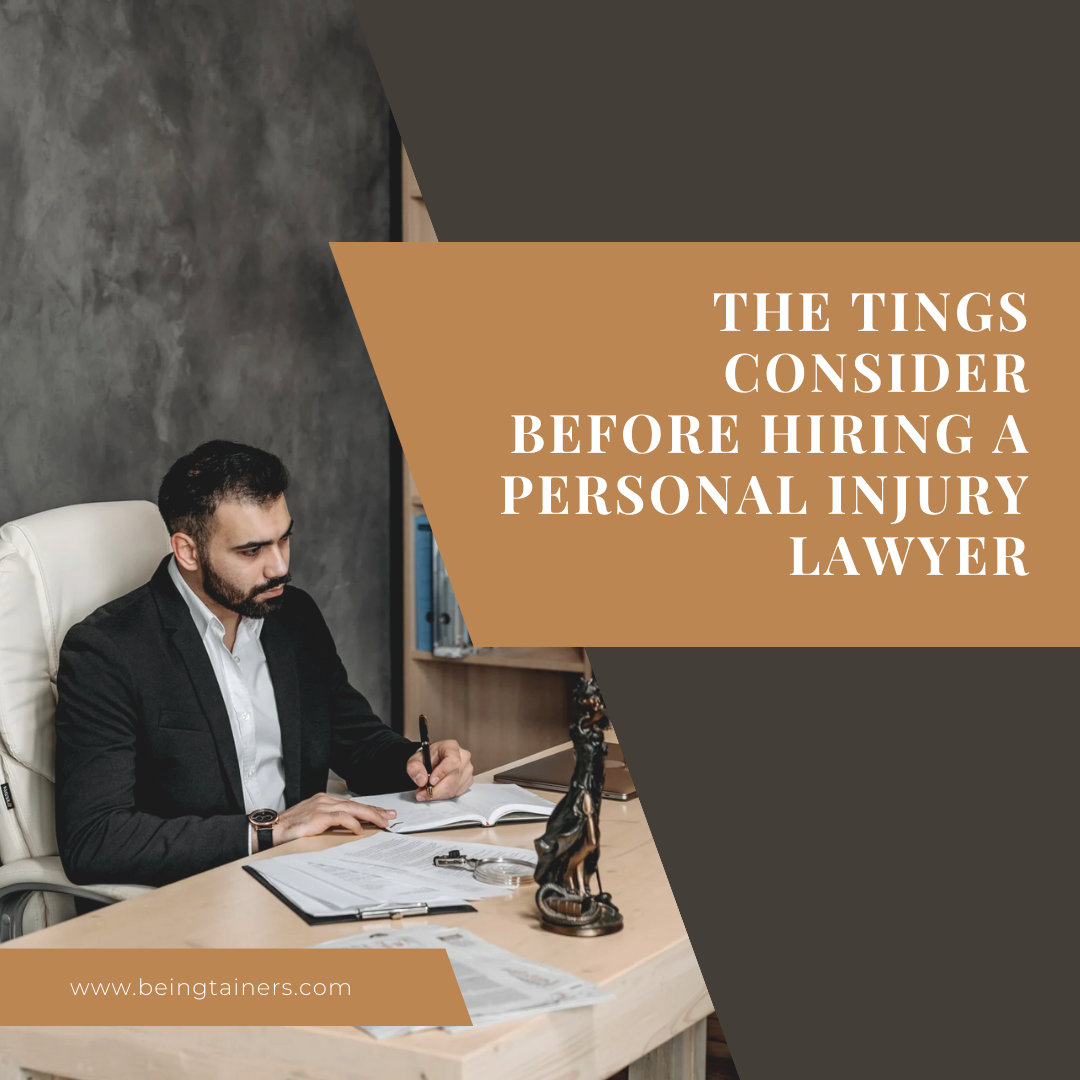Life takes unexpected turns. One minute you’re going about your day, the next you’re facing a personal injury Lawyer due to someone else’s negligence. Suddenly, medical bills are piling up, and daily tasks feel impossible. You might be wondering if you need a personal injury lawyer. The answer? It depends. Here’s what to consider before hiring one:
The Strength of Your Case
Before you read helpful resources like Hibu reviews, you have to know that not all injuries necessitate a lawyer. Minor fender benders with minimal damage might be better handled without legal representation. But if your injury is serious, with extensive medical bills and lost wages, a lawyer can be invaluable. They’ll assess the strength of your case, consider factors like liability, evidence, and potential damages.
Experience Matters
Law isn’t a one-size-fits-all situation. When hiring a personal injury lawyer, look for someone who specializes in your specific type of case. Here are some examples of personal injury specializations:
Car Accident Law
If you were injured in a car accident, truck accident, or motorcycle accident, seek a lawyer with a proven track record of handling these types of cases. They’ll be familiar with the complex traffic laws and insurance regulations that apply.
Medical Malpractice Law
If you were injured due to a doctor’s negligence, a lawyer specializing in medical malpractice is essential. These lawyers understand the intricacies of medical care and can help you hold negligent medical professionals accountable.
Product Liability Law
If a defective product caused your injury, a product liability lawyer can advocate for you. They’ll investigate the product defect, determine liability, and fight for the compensation you deserve.
Workplace Injury Law
Workplace injuries can be complex, especially if workers’ compensation is involved. A workplace injury lawyer can ensure your rights are protected and help you obtain maximum compensation for your injuries.
Wrongful Death Law
If you lost a loved one due to someone else’s negligence, a wrongful death lawyer can guide you through the legal process and fight for fair compensation.
Specialization ensures your lawyer understands the nuances of your situation and has a proven track record of success in similar cases.
Communication is Key
Throughout the legal process, you’ll need a lawyer who keeps you informed. Ask about their communication style during your initial consultation. Will they answer your questions promptly? Do they prefer email or phone calls? You deserve a lawyer who explains things in a way you understand, not someone who throws legal jargon around.
Fees and Costs
- Personal injury lawyers generally operate on a contingency fee basis, meaning their payment depends on winning the case. They typically receive a percentage of the compensation awarded to you.
- Before signing anything, understand the fee structure completely. Get everything in writing, including any potential out-of-pocket costs associated with your case.
Look For Personal Compatibility
When working with a lawyer, personal compatibility is crucial. During your initial consultation, evaluate whether you feel at ease with them and confident in their abilities. Do they listen to your concerns? Do they seem genuinely interested in helping you? A good rapport can make the process smoother and less stressful.
Verify Their Credentials
Always verify a lawyer’s credentials. Check their education, bar association membership, and any special certifications they might have. This information is often available on their website or through your state bar association. Ensuring they have the proper credentials will give you confidence in their legal abilities.
Seek Recommendations
Recommendations from friends, family, or other professionals can be invaluable. They can provide personal insights based on their experiences. When someone you trust recommends a lawyer, it can give you peace of mind knowing they have a proven track record.
Evaluate Their Strategy
Ask about the lawyer’s strategy for your case. They should have a clear plan and be able to explain the steps they will take to secure a favorable outcome. Their strategy should align with your goals and expectations. A lawyer with a well-thought-out plan is more likely to achieve a successful result.
Consider Their Resources
The resources a law firm has can affect the outcome of your case. Larger firms often have more resources, including a team of lawyers, paralegals, and experts. These resources can be beneficial, especially for complex cases. However, smaller firms might offer more personalized service. Weigh the benefits of both before making a decision.
Reflect On Their Professionalism
Professionalism is a key trait, especially in personal injury law. Observe how they conduct themselves during your interactions. Are they punctual? Do they dress appropriately? Do they communicate respectfully? A professional demeanor can reflect how they will handle your case and interact with others on your behalf.
Think About Their Negotiation Skills
Most personal injury cases are settled out of court. Your lawyer’s negotiation skills are crucial. Ask about their experience with negotiating settlements. A skilled negotiator can often secure a better settlement than one who lacks this ability.
Conclusion
Hiring a personal injury lawyer can be a daunting task. But by considering these factors, you can find the right advocate to fight for the compensation you deserve. Remember, you’re not alone in this. With the right legal guidance, you can navigate this challenging time and focus on your recovery.

